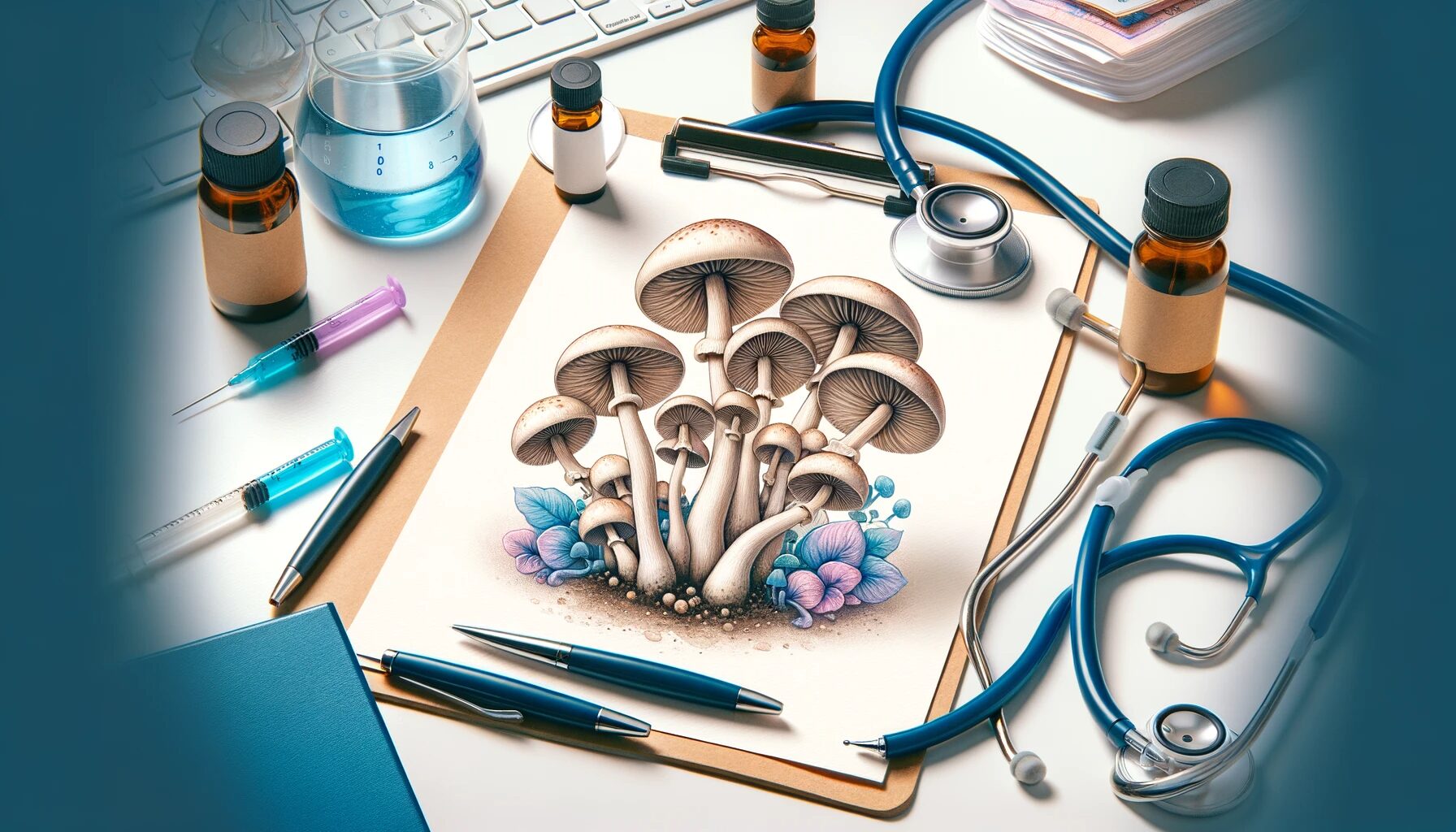In recent years, the topic of magic mushrooms, scientifically known as Psilocybin mushrooms, has transcended the realm of traditional psychedelic culture, entering the sphere of medical research. These fungi, long associated with spiritual and ceremonial use, are now being investigated for their potential therapeutic benefits. This article aims to explore the medical benefits of magic mushrooms, delving into current research, potential applications, and considerations.
Understanding Magic Mushrooms
Scientific Background: Magic mushrooms belong to a group of fungi that contain Psilocybin, a naturally occurring psychedelic compound. When ingested, Psilocybin is converted to Psilocin, which is responsible for the mushrooms’ psychoactive effects.
Historical Use: Historically, these mushrooms have been used in various cultures for spiritual and religious rites, believed to induce transformative and transcendental experiences.
Medical Research and Psilocybin
Early Studies: Initial research in the mid-20th century began to explore the therapeutic potential of Psilocybin, but studies were largely halted due to the legal and social ramifications surrounding psychedelic substances.
Resurgence in Research: In recent decades, interest has been resurgent, with studies focusing on the controlled medical use of Psilocybin.
Potential Therapeutic Benefits
Mental Health Treatment:
Depression: Several studies have shown promising results in treating depression, particularly in cases where patients are resistant to traditional antidepressants.
Anxiety and End-of-Life Distress: Research indicates potential benefits in reducing anxiety, especially in patients with life-threatening diseases, by providing a sense of peace and existential perspective.
Addiction Treatment:
Psilocybin therapy has been explored as a treatment for various addictions, including smoking and alcohol dependence, with some studies showing significant success rates.
Neurological Benefits:
Neuroplasticity: There is evidence that Psilocybin can promote neuroplasticity, the brain’s ability to form new connections and pathways, potentially aiding in recovery from neurological damage.
Cluster Headaches: Anecdotal reports and preliminary studies suggest that Psilocybin may help in treating cluster headaches, a condition notoriously difficult to treat.
Personal and Spiritual Growth:
Users often report profound personal and spiritual insights during Psilocybin experiences, which can contribute to long-term positive changes in personality, attitude, and overall life satisfaction.
Safety and Risks
- Psychedelic Experience: The psychedelic experience can vary widely and can sometimes be intense and challenging, particularly for those with a history of mental health issues.
- Set and Setting: The outcome of a Psilocybin experience can be influenced by the individual’s mindset (set) and the environment (setting), highlighting the importance of controlled, supportive conditions for therapeutic use.
- Legal Status: Currently, magic mushrooms are classified as a Schedule I substance in many countries, limiting their legal use to clinical research settings.
Current Legal and Clinical Landscape
- Legalization Efforts: There are growing movements in several regions advocating for the legalization of Psilocybin mushrooms for medicinal purposes. Some areas have decriminalized or allowed limited use under strict clinical conditions.
- Clinical Trials: Numerous clinical trials are underway to better understand the efficacy, dosage, and safety of Psilocybin for therapeutic use. These studies are critical in paving the way for potential future medical applications.
Future Directions and Considerations
Medical Integration:
The integration of Psilocybin therapy into mainstream medicine requires careful consideration, including developing standardized dosing regimens, training for therapists, and establishing guidelines for patient selection.
Ethical and Social Implications:
The use of Psilocybin raises ethical questions, such as ensuring informed consent and addressing potential misuse. Social implications, including the stigma surrounding psychedelic substances, also need to be considered.
Personalized Medicine:
Future research may focus on personalized medicine approaches, tailoring Psilocybin therapy to individual patient needs, and psychological profiles.
Broader Applications:
Investigating broader applications for Psilocybin, such as its potential in treating other psychiatric or neurological conditions, could be a key area of future research.
Conclusion
The medical benefits of magic mushrooms, primarily driven by the compound Psilocybin, represent a fascinating and rapidly evolving area of study. While the potential therapeutic applications are promising, particularly in mental health and addiction treatment, there remain challenges related to safety, legality, and social acceptance. Ongoing research and clinical trials are crucial in determining how these ancient fungi might be harnessed for modern medical applications, potentially offering new hope for patients with conditions that are currently difficult to treat.
FAQs
Q1: What are magic mushrooms, and why are they significant in medicine?
- A1: Magic mushrooms are a type of fungus that contains Psilocybin, a compound with psychoactive properties. They are significant in medicine due to their potential therapeutic benefits, particularly in treating mental health disorders like depression, anxiety, and addiction.
Q2: How do magic mushrooms affect the brain?
- A2: Psilocybin in magic mushrooms is converted to Psilocin in the body, which influences serotonin receptors in the brain. This can lead to altered perceptions, emotions, and cognitive processes, potentially providing therapeutic benefits.
Q3: Are magic mushrooms safe to use for medical purposes?
- A3: In controlled clinical settings and under professional guidance, magic mushrooms are relatively safe. However, their safety outside of these settings is not well-established, and they can pose risks, especially for individuals with certain mental health conditions.
Q4: Can magic mushrooms cure depression or anxiety?
- A4: While not a cure, studies suggest that magic mushrooms can significantly reduce symptoms of depression and anxiety in some individuals, particularly where traditional treatments have failed.
Q5: What is the legal status of magic mushrooms?
- A5: Magic mushrooms are classified as a Schedule I substance in many countries, making them illegal for general use. However, research on their medical application is ongoing, and some regions have begun to decriminalize or approve their use under strict medical supervision.
Q6: Can anyone take magic mushrooms for therapeutic reasons?
- A6: Not everyone is a suitable candidate for therapy involving magic mushrooms. It is generally recommended only for specific conditions and under professional supervision, considering individual health history and psychological state.
Q7: What are the potential side effects of using magic mushrooms?
- A7: Side effects can include nausea, increased heart rate, changes in sensory perception, and intense emotional experiences. The psychological effects can be profound and, in some cases, unsettling.
Q8: How long do the effects of magic mushrooms last?
- A8: The effects of magic mushrooms can last several hours, depending on the dose and individual metabolism. The psychological impact, however, can last much longer, sometimes resulting in long-term changes in perspective or behavior.
Q9: Are there ongoing clinical trials for magic mushrooms?
- A9: Yes, numerous ongoing clinical trials are exploring various medical applications of magic mushrooms, particularly in the fields of psychiatry and neurology.
Q10: Can magic mushrooms be used alongside conventional treatments?
- A10: This depends on the specific case and should only be considered under the guidance of a healthcare professional. There can be interactions with other medications, and the combined effects need careful management.

Alex is a seasoned writer and researcher, specializing in psychedelic studies and mental health. Known for insightful and authoritative content, he combines extensive knowledge with a passion for exploring wellness and alternative therapies. Alex’s work is a trusted resource for readers delving into the world of mental well-being.


Leave a Reply